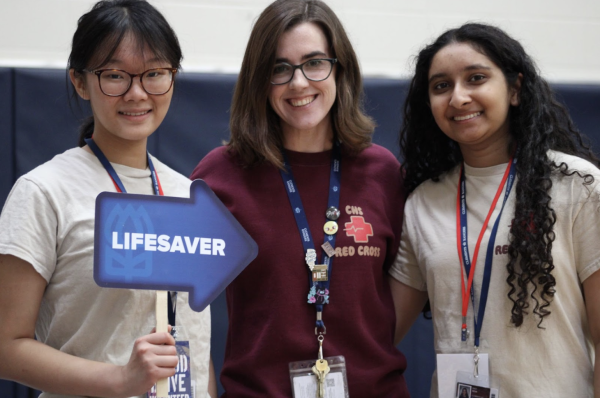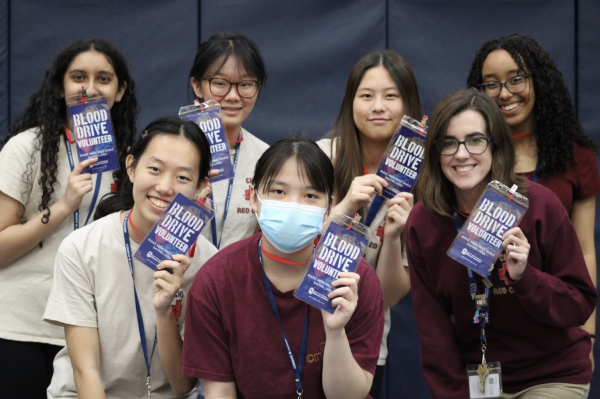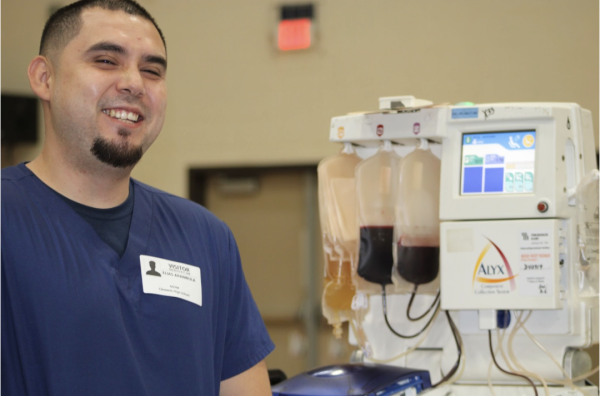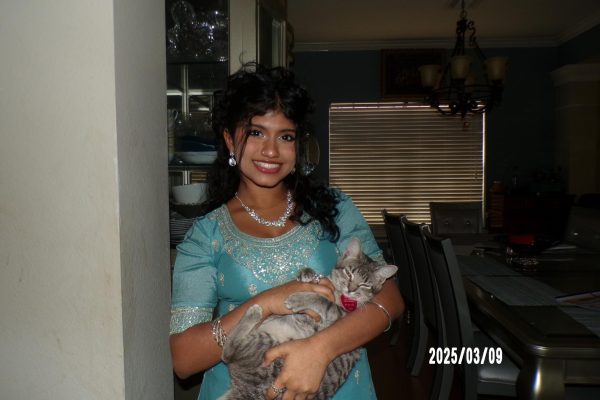Red Cross, although famous for its annual blood drive, is more than what meets the eye. It’s about contributing to a greater cause and potentially saving lives. But it’s not just about donating blood; it’s about building community, gaining real-life skills, and making a meaningful impact, one project at a time. Hear personally from sponsor Caitlin Zuber, president Hannah Wang, and vice president Tiffany Yuan.
Andria Reji: Ms. Zuber, how did you first become involved with sponsoring the club?
Caitlin Zuber: Back at the beginning of the 2021–2022 school year, some students came to me after participation had dropped during the pandemic. They explained the mission: helping others through healthcare-related activities like blood drives, and I thought it was a perfect fit. They also promised they’d be super responsible and do all the work, so I said yes.
AR: What do students actually gain from joining and contributing to the Red Cross?
CZ: A lot, honestly. Members become more aware of health issues through presentations, and when they volunteer at blood drives, they get hands-on experience. Officers, especially, grow their leadership skills. Plus, the club connects students across grades who share an interest in healthcare and service.

AR: Hannah, what motivated you to join the Red Cross club in the first place?
Hannah Wang: I liked that it wasn’t just talk—people actually go out and help others. We’ve done food and can drives, along with volunteering events that really impact the community.
AR: What skills or lessons have you personally gained from being in a leadership role?
HW: So much about staying organized under pressure and adapting when things don’t go as planned—because they never fully do when you’re running an event. It’s also taught me how to listen to others’ ideas, delegate tasks, and gain confidence in working with a team.

AR: Tiffany, what challenges has the club faced, and how are you working to overcome them?
Tiffany Yuan: When I first joined, there weren’t many group volunteering opportunities. It felt a little lecture-based—like people listened, played a Kahoot, and left. I wanted to change that. Now, we’ve built in more hands-on experiences through regional Red Cross events, like smoke detector installations and donation drives for veterans.
AR: What’s Red Cross got planned for this year?
TY: We’re expanding even more. We’re offering free CPR and Stop the Bleed training to students, so you don’t have to go find an expensive class somewhere else. We’ll keep hosting blood drives, fundraisers, and regional campaigns, and we’re planning to attend a leadership development conference, too. The goal is to give students real-world, life-saving skills while also keeping service meaningful and engaging.

Red Cross is more than just a resume booster; it’s a chance to connect with peers, take part in significant service projects, and maybe even learn how to save a life. Red Cross provides so many meaningful experiences; experiences you can look back on fondly in the future, especially if you plan on joining the medical field. Whether you’re interested in healthcare, leadership, or just lending a hand, Red Cross has a place for you.
As Zuber put it best: “It’s about building awareness, creating connections, and making a real impact in our community.”

